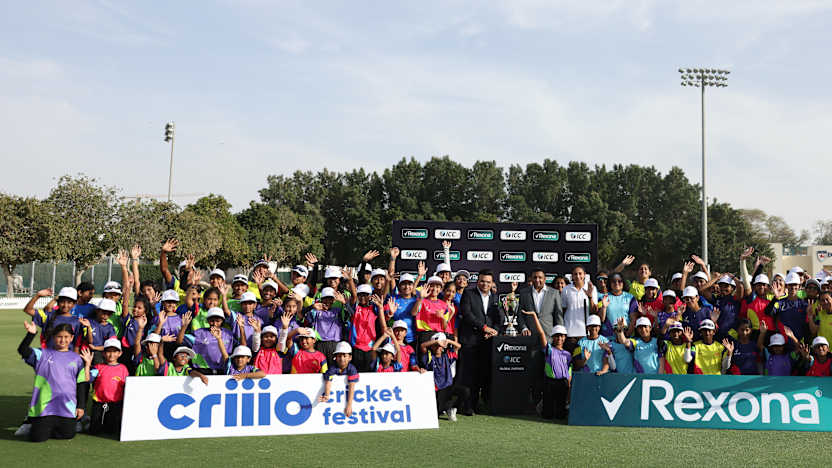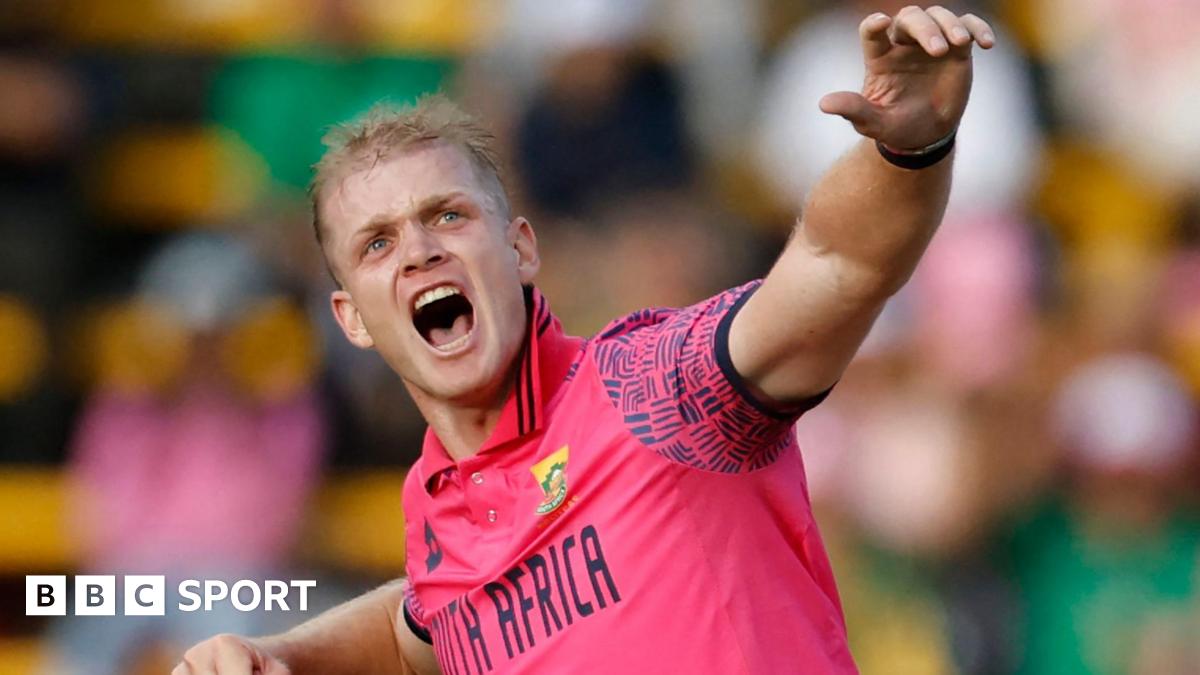Reboot Of Cricket’s Afro-Asia Cup Being ‘Looked At’

The Afro-Asia Cup was played in 2007 (Photo by INDRANIL MUKHERJEE/AFP via Getty Images)
Rebooting the Afro-Asia Cup, a marquee event played twice in the 2000s when cricketers from foes India and Pakistan famously teamed up, remains on the cards.
The planned revival might regain momentum with the ascension of Jay Shah as International Cricket Council chair amid board and Chief Executives’ Committee changes.
As I reported in 2022, a proposed update of the original version was in the works following discussions between Shah, the Asian Cricket Council chair, then African Cricket Association chair Sumod Damodar and ACC head of development Mahinda Vallipuram.
The Afro-Asia Cup was planned to be held in mid-2023 and played in the T20 format. An annual fixture was mooted and set to feature some players from Associate nations. Pathways were also hoped to be established, including U16 and U19 Afro-Asia Cups, and women’s equivalents.
But the plans fizzled out amid apparent dysfunction within the ACA, where regional powers South Africa and Zimbabwe have stepped in to stabilize the body that coordinates the development of cricket in Africa.
“Personally, I am very hurt that it (Afro-Asia Cup) didn’t happen,” Damodar told me. “There was not adequate momentum through the ACA, but it is being looked at again. I think it was basically a lack of understanding and not buying into the concept.
“Our members are regretting it. It needed to be pushed by Africa.”
The Afro-Asia Cup was played twice in the mid-2000s (Photo by DIBYANGSHU SARKAR/AFP via Getty … [+]
Played in 2005 and 2007 before petering out due to broadcast and political issues, the Asian XI featured Pakistan stars Shoaib Akhtar and Shahid Afridi rubbing shoulders with India counterparts Virender Sehwag and Rahul Dravid. The African XI was a mix of players from South Africa, Zimbabwe and Kenya.
They were rare occurrences of Indian and Pakistani players joining forces on the same team. Those matches were held before the Mumbai terrorist attacks in 2008 and subsequent politicking from the bitter neighbors spilled into cricket where the countries don’t play each other in bilaterals.
The last bilateral series between India and Pakistan was in 2012-13 and they haven’t played Tests against each other since 2007.
The rivalry is consigned only to ICC events, where authorities ensure India and Pakistan are always in the same group to ensure the money-spinning contest is played.
It might seem fanciful that their players would unite if the Afro-Asia Cup gets off the ground, but the concept is hoped to provide a thawing between such frayed relations that strikes at the heart of cricket.
Potentially seeing Virat Kohli and Babar Azam, among other stars, batting in partnership would be a huge drawcard.
“These matches could break down barriers that are there politically,” Damodar said. “Cricket can help build the bridges rather than burn it up. I don’t personally believe that players are antagonistic against each other, so I’m sure they would be up for it.”
India and Pakistan is cricket’s biggest rivalry (Photo by Pankaj Nangia/Getty Images)
While the proposal has stalled, hopes have raised with Shah’s rise to running world cricket, while Vallipuram was last month re-elected to the ICC board. Damodar will contest the upcoming CEC election for a vacant Associate seat.
“With Mahinda now on the ICC board and Jay Shah running the ICC, that could bring a bit more momentum to this cause,” Damodar said. “Both of them have always been proactive in trying to make this happen.”
Related
‘Listen from one ear, ignore from the other’: Former India…
India's Rohit Sharma and Mohammed Shami (AP Photo) NEW DELHI: Former wicketkeeper-batter Syed Kirmani has expressed his opinion that experienced fast bowler Mo
India faces New Zealand in budding rivalry at Champions Trophy…
State AlabamaAlaskaArizonaArkansasCa
ICC and Unilever announce landmark partnership on International Women’s Day…
The two-year partnership, kicking off at this year’s Women’s Cricket World Cup in India and running until the end of 2027, marks the world cricket governing
IPL 2025: Mumbai Indians sign Corbin Bosch as replacement for…
Mumbai Indians have signed South Africa all-rounder Corbin Bosch as a replacement for his injured countryman Lizaad Williams for this year's Indian Premier Leag











